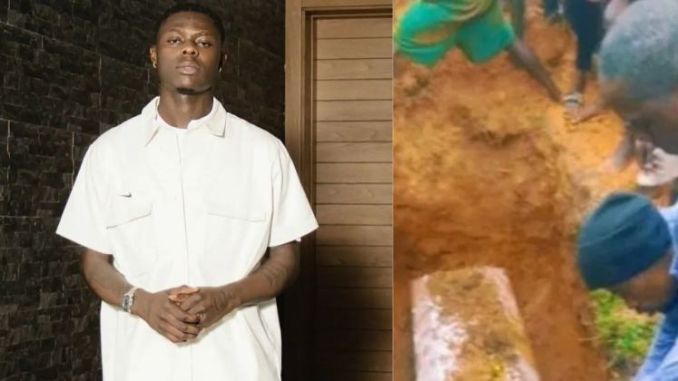

Yesterday, September 21st 2023, the body of the late Nigerian singer Ilerioluwa Aloba better known as Mohbas was exhumed by a combined team of the Nigeria Police Force and health officials.
The Lagos State Police Command confirmed the exhumation of Mohbad’s corpse, adding that plans are underway to commence an autopsy on the singer’s remains.
The police also arrested the nurse who reportedly injected the deceased singer prior to his demise on Tuesday, September 12.
“Mohbad’s corpse has been exhumed today, and an autopsy will begin as soon as possible,” the Lagos State Police Command Public Relations Officer, Benjamin Hundeyin, confirmed the developments to our correspondent in an exclusive telephone interview on Thursday.
Also the post on their verfied page on X platfrom read; “Mohbad: Autopsy Update The Nigeria Police Force wishes to inform the public that the autopsy procedure for Mr. Mohbad has been successfully completed. Further information will be provided as soon as the results are available. #Justice4mobhad.”
With the development, Intel Region takes a look at things to know about an autopsy.
An autopsy is a detailed and careful medical examination of a person’s body and its organs after death to help establish the cause of death, according to https://australian.museum/
1. External examination
The first step in any forensic autopsy is the external examination of the body.
2. Internal examination
To expose the internal organs, the pathologist must open the body.
3. Viewing the internal organs
The organs include lungs, heart, liver, stomach, large intestines, and small intestines.
4. Removing the organs
This method involves removing the body’s organs all at once. The organs are dissected one by one and during the examination, the forensic pathologist will collect small samples of tissue for further examination under the microscope.
5. Removing the brain
After the necessary procedure and incision, the entire brain will gently be lifted out of the cranial vault.
6. Examining the organs
All organs, except for the intestines and stomach are weighed.
7. Returning organs to the body
Following the examination, organs are returned to the body except for the small fragments of tissue sampled for microscopic examination.
8. Sewing up the body
After the pathologist has finished the examination and the organs are returned to the body, the post-mortem technician will sew back up the body.
